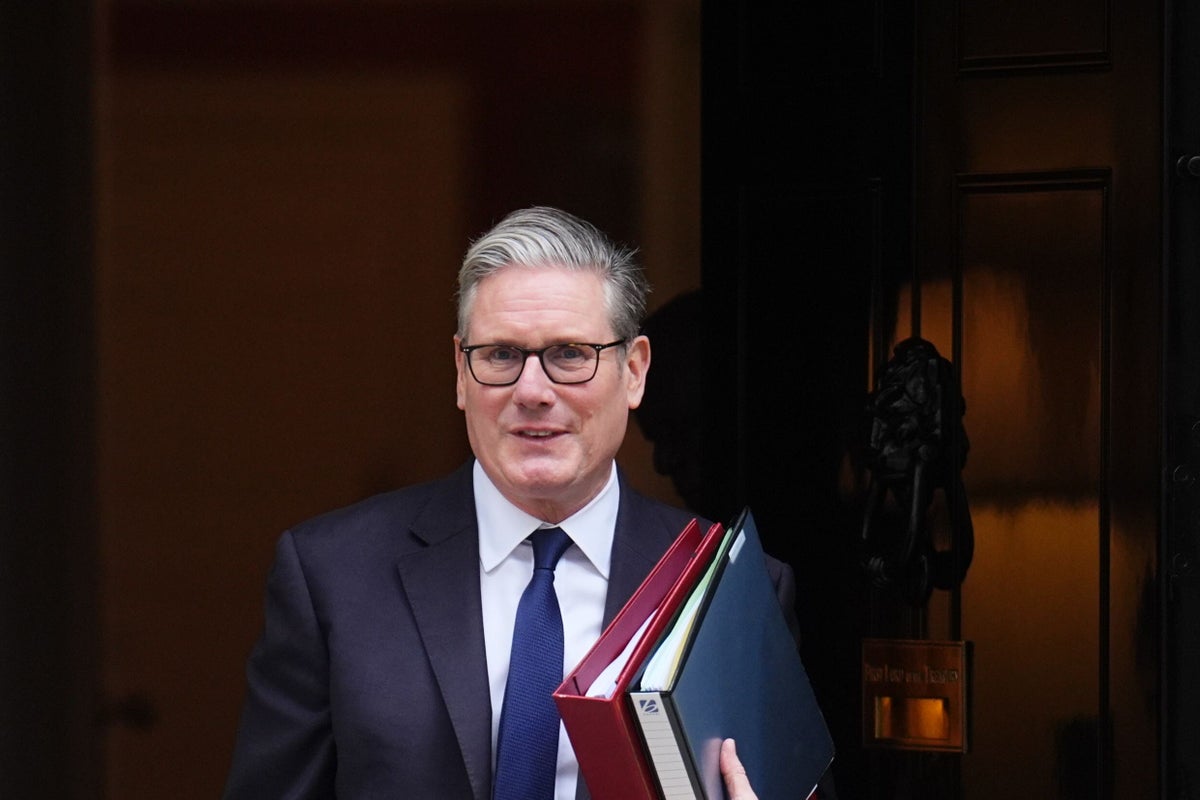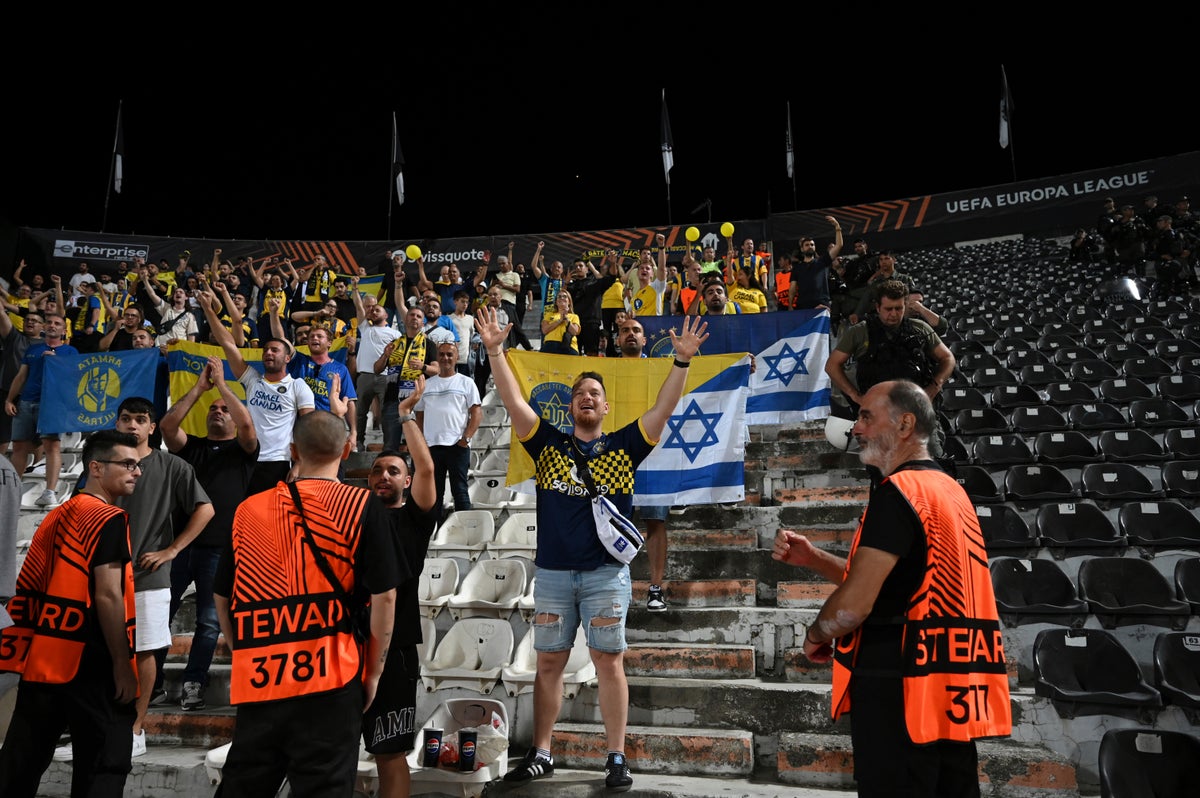Aston Villa’s Decision to Ban Maccabi Tel Aviv Fans Ignites Political Firestorm, Echoing Historical Tensions and Modern-Day Divisions in Sport and Society
Aston Villa’s upcoming Europa League match against Maccabi Tel Aviv has become a focal point for controversy and division, highlighting the intersection of sport, politics, and community safety. The decision to ban away fans from Maccabi Tel Aviv has not only raised eyebrows but has also ignited passionate responses from politicians, fans, and commentators alike. This contentious situation is rooted in a complex tapestry of historical grievances, current geopolitical tensions, and the broader implications for fan culture in football.
The backdrop of this match is undeniably charged, given the recent escalation of violence in the Israel-Gaza conflict. The Safety Advisory Group (SAG) in Birmingham, in consultation with West Midlands Police, deemed the match “high-risk,” leading to the decision to prohibit approximately 1,000 Maccabi fans from attending. This decision has faced fierce criticism from various quarters, including Sir Keir Starmer and Conservative leader Kemi Badenoch, who have labeled it a “national disgrace.” Their comments underscore the political ramifications of sporting events, particularly when they intersect with sensitive global issues.
The immediate catalyst for the ban appears to stem from intelligence assessments and past incidents involving Maccabi Tel Aviv fans, most notably violent clashes during a previous Europa League match against Ajax in Amsterdam. Pro-Palestinian protests and anti-Israeli sentiments have resulted in confrontations that have raised concerns about the potential for similar unrest in Birmingham. The police cited these prior incidents, which included violent behavior and the chanting of inflammatory slogans, as justification for the ban, framing it as a necessary measure to ensure public safety.
However, the implications of this decision extend far beyond the confines of Villa Park. The absence of away fans is anticipated to affect the atmosphere of the match, with many supporters lamenting the loss of the traditional fan rivalry that adds vibrancy to football fixtures. Jonny Gould, a former director of the Aston Villa Supporters Trust, expressed discontent over the politicization of football, emphasizing the need to keep such matters separate from the sport. This sentiment resonates with many fans who cherish the communal experience of attending matches, irrespective of the political climate.
The decision to ban Maccabi fans also raises critical questions about the future of fan engagement in football. Jack Angelides, the chair of Maccabi Tel Aviv, articulated concerns about the potential precedent this sets for future events, suggesting that it could signal a troubling trend in how sporting events are managed in the face of political tensions. The historical context of antisemitism and its manifestations in contemporary society cannot be overlooked, as the decision has sparked discussions about the broader implications for Jewish communities and the perception of safety at sporting events.
The heightened police presence, with over 700 officers, drones, and additional security measures, reflects the seriousness with which authorities are approaching the event. The community surrounding Villa Park, noted for its significant Muslim population, is also under scrutiny as tensions rise. The police have indicated their commitment to balancing the right to protest with community safety, anticipating demonstrations both in support of and against the decision to ban Maccabi fans. The potential for counter-protests further complicates the landscape, underscoring the charged atmosphere in which this match is set to unfold.
As the match day approaches, the stakes are high not only for the teams on the pitch but for the broader community and the fabric of football culture itself. The intersection of sport and politics has always been fraught with challenges, but the current situation presents a unique test of how football can navigate these turbulent waters. The outcome of this match may well reverberate beyond the final whistle, influencing how sporting events are perceived and managed in an increasingly polarized world.
Aston Villa host Maccabi Tel Aviv in the Europa League on Thursday night after the fixture prompted weeks of controversy.
Away fans for the Israeli club have been banned from attending, with the Premier League club sharing the decision made by Birmingham City’s Safety Advisory Group (SAG), who issue safety certificates for matches at the Villa Park stadium.
The decision has sparked anger from Sir Keir Starmer and others, with the prime minister emphasising that the police should “ensure all football fans can enjoy the game, without fear of violence or intimidation”.
While Conservative leader Kemi Badenoch labelled the decision “a national disgrace,” with discussion in recent months about the inclusion of Israeli teams in international competitions as a result of the Israel-Gaza war.
After the ceasefire agreed last month, the fixture is set to go ahead. Here is where we stand amid security concerns for this Uefa Europa League league phase match:
Why are there no away fans?
The call local Safety Advisory Group (SAG), with help from an assessment from West Midlands Police that the match was “high-risk”, decided that approximately 1,000 Maccabi fans would be banned from attending.
The decision was not only made with the context of the Israel-Gaza war, with police adding that the move was also “based on current intelligence and previous incidents, including violent clashes and hate crime offences that occurred during the 2024 Uefa Europa League match between Ajax and Maccabi Tel-Aviv in Amsterdam".
There were strong calls to reverse the decision, which was deemed politically controversial, but Maccabi stated on 20 October that they would snub the offer of tickets due to “a toxic atmosphere has been created which makes the safety of our fans wishing to attend very much in doubt.”
Are there any recent examples of Maccabi Tel Aviv fans at away matches that have influenced the decision?
Violent clashes and hate crime offences took place around the Europa League match between Ajax and Maccabi Tel Aviv in Amsterdam last year, which the Eredivisie side won 5-0.
Pro-Palestinian supporters and Israeli fans of Maccabi Tel Aviv clashed in the Dutch capital. Amsterdam’s police chief said Maccabi supporters attacked a taxi and set a Palestinian flag on fire the day before the match, as well as chanting anti-Palestinian slogans on matchday. The clashes led to dozens of arrests, while five people were imprisoned.
There have been accusations of antisemitic attacks in the immediate aftermath of the clashes from 6-7 November. Amsterdam Mayor Femke Halsema claimed the incidents caused “a black night and a dark day” for the city, claiming antisemitic “criminals” attacked Jewish visitors and that “it was hit and run”.

What measures are in place and will there be an increased police presence?
It has been widely reported that there will be more than 700 police officers on duty on the evening of the game in and around Villa Park Stadium. Horses, dogs, a drone unit, and road policing officers will be present and there is a no-fly zone around the ground. The community in the Aston area is 73.3 percent Muslim, according to the 2021 Census.
While there will be a heightened police presence between Aston and Witton train stations, West Midlands Railways has confirmed.
So why is the decision to ban fans controversial?
Uefa, European football’s governing body, has told Reuters that competent local authorities are responsible for the decision over fan safety.
Some supporters have reacted negatively to the decision, pointing out it will impact the atmosphere, while Jonny Gould, former director of the Aston Villa Supporters Trust, maintains he “doesn’t want politics in the business of football”.
While a more serious impact from the decision, according to Maccabi Tel Aviv chair Jack Angelides, is how it might set a precedent for how events are handled moving forward.
“To be frank, it’s met with some dismay about what this potentially is signalling,” he told Radio 4’s Today show. “I do think this is an extremely important moment because of what it signifies. I don’t use this term lightly but people ask: ‘What does antisemitism look like?’ "And it’s often manifested as part of a process – a process, in other words, small events leading up to something that’s more.”

Will there be protests?
Birmingham Police commander Ch Supt Tom Joyce confirmed that protests are expected to take place on the day, with plans in place “to balance the right to protest with our duty to protect all communities in Birmingham.”
There could also be counter-protests with support for Israel.
West Midlands Police released a statement on social media on Wednesday confirming that supporters planning to attend the fixture on Thursday night will face “multiple ticket checks on the approach to the stadium.”
